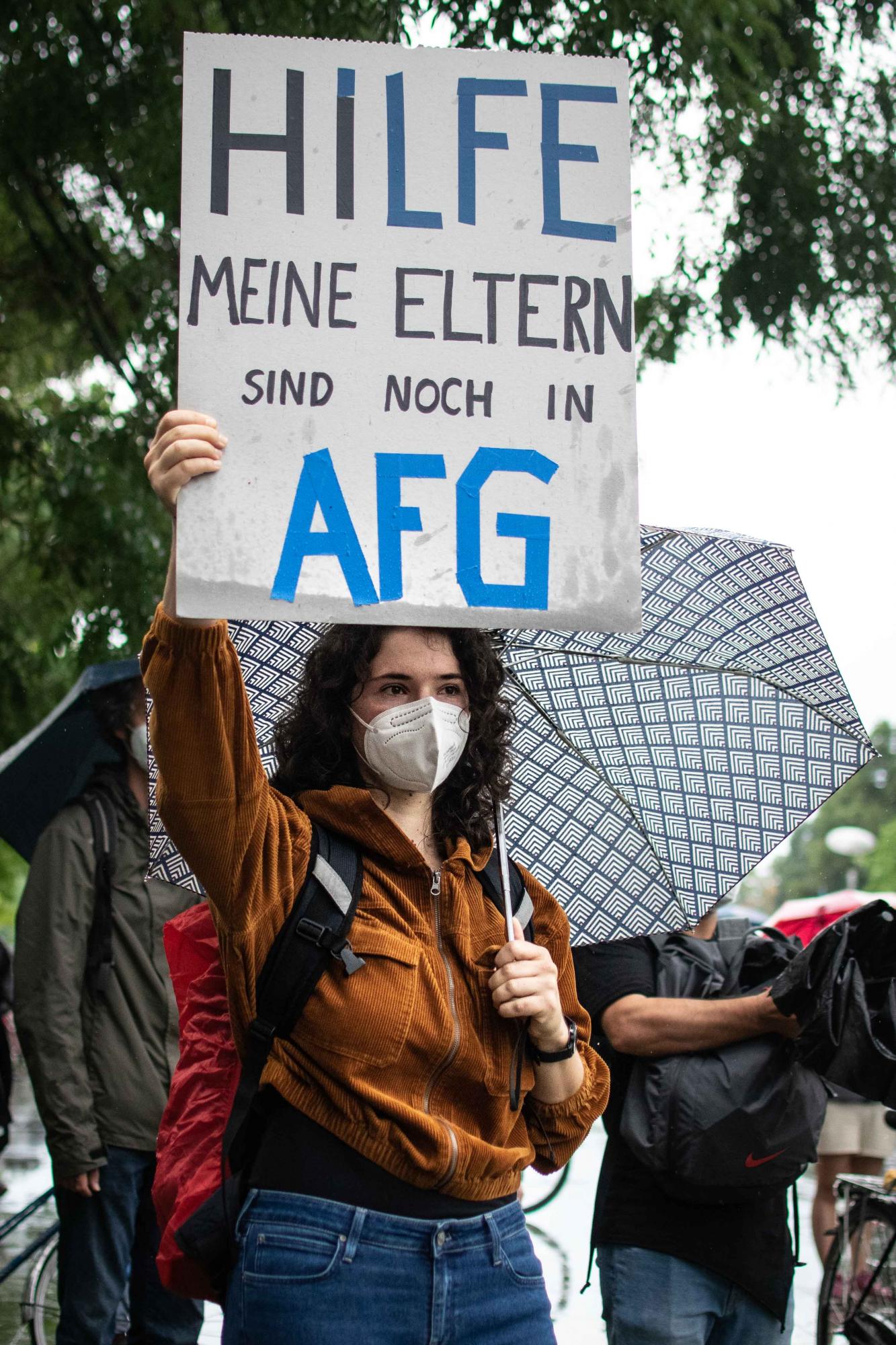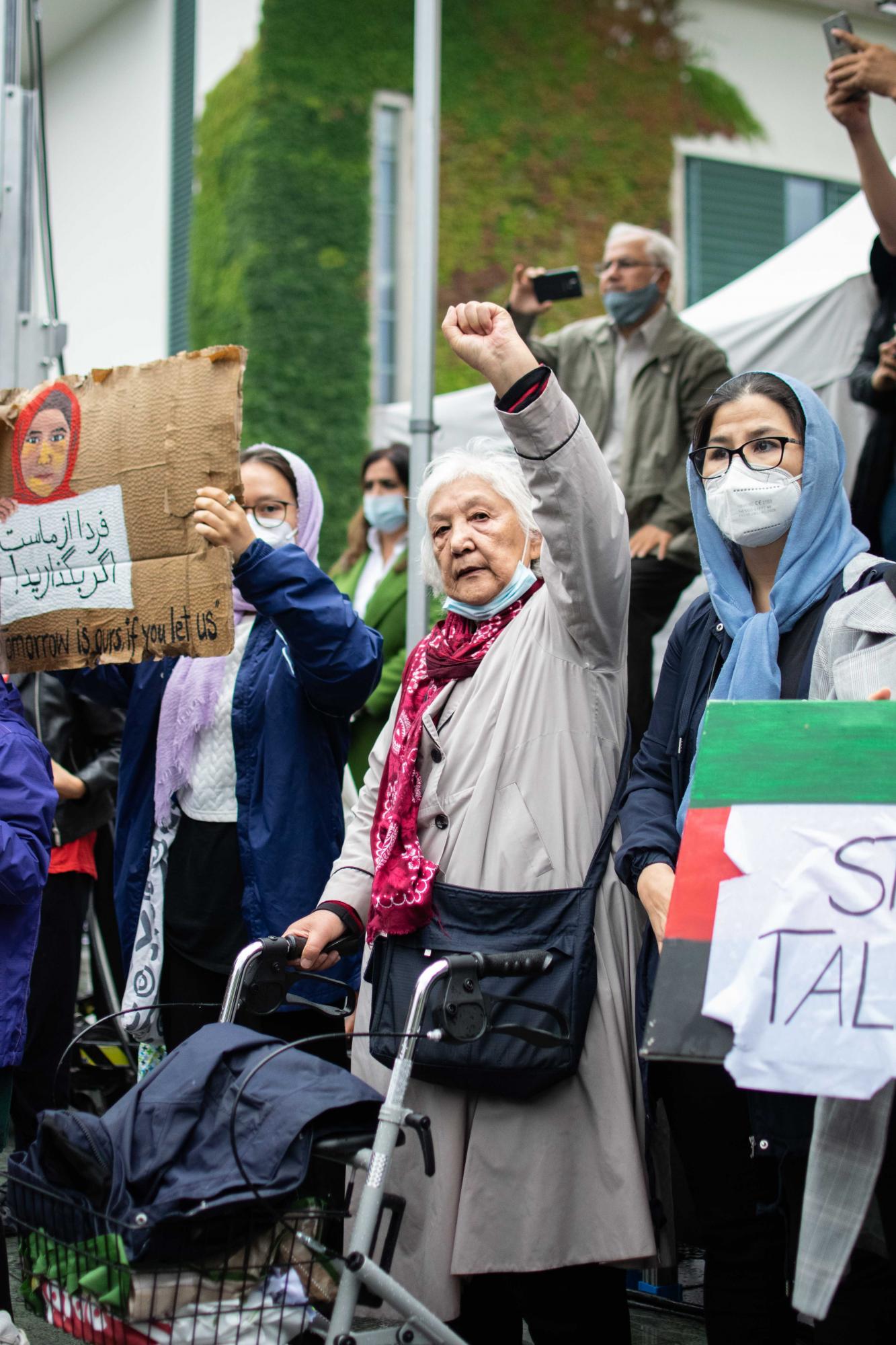The Taliban are back. International troops have left, and the people are facing a new dangerous political reality in Afghanistan. dis:orient spoke with two activists stuck in Kabul.
In February 2020, a so-called peace treaty was signed between the United States, still under U.S. President Trump and the militant Islamist Taliban in Afghanistan. This included troop withdrawals by the U.S. and its NATO allies, a commitment by the Taliban not to tolerate anti-U.S. terrorist actors such as al Qaeda in Afghanistan, and to enter into substantive peace negotiations with the Afghan government.
But before any internal Afghan process and agreement was reached, U.S. President Joe Biden announced May 2021 as the official withdrawal date. In a flurry of activity, international troops left and within weeks the major cities all over the country fell into the hands of the Taliban. With almost no possibility of opposition, the Taliban managed to overtake Kabul at the beginning of the week. As President Ashraf Ghani also fled the country, the Afghan people were entirely left behind. Commenting on the dramatic events of the past week, dis:orient spoke with two activists who are stuck in the capital at the moment.

Ferzaneh* (41), women’s rights activist
Two days ago, we went to the airport to be evacuated. On the way, there were three Taliban checkpoints. Everyone was terrified of being attacked by them. I saw the anger and fear of the people, which contributed to the chaos on the streets and at the airport. And that anger was reflected on the Taliban side as well. They shouted to the people that they were their brothers and were not coming to harm them. They told people to control themselves and follow the order.
Now we are stuck and can't find a way to get to the airport. I have tried three times, unsuccessfully. At the moment, I'm trying to remain inconspicuous. We participated in elections throughout the years, became active, and put our lives at risk for those who have left us behind as if we were worth nothing. That means those directly threatened and those who need priority treatment, like people with disabilities, the sick, the elderly, children are just left behind. This is inhumane and it’s unforgivable that President Ghani just abandoned the people.
I’m also highly disappointed with the behavior of the international community, especially the U.S., which de facto carried out an unconditional withdrawal. That was hasty and blind. The same international community and the embassies said that they would stay by our side, by the side of the people of Afghanistan.
In November 2020, we started lobbying for charity support. At that time, we presented different scenarios. But no one listened to us. Now what we proposed has come to pass: That we might have visas, we might have money, we might have everything, but no way to get out. Right now, I have seven visas from seven countries. But I am not able to get out of Afghanistan.
We know nothing about our future, only that we are in the hands of the Taliban. We will see what kind of government they will have. The question is what their policies and procedures will be. There are people from Herat who are happy with them. On the other hand, we hear from people from Helmand who have had terrible experiences. So we can't say a hundred percent what is going on. We hope those good people will come together in this new government and improve the situation.

Hamed* (34), social activist
The people in Kabul are crying. You can see the despair in their faces. When I ask someone, “How are you?”, the answer is, “I’m just a body without a soul.”
Not only me, but all the people here in Afghanistan feel desperate. They think that they have lost everything. They have lost their ambition; they have lost their hope. The people are worried about their future and also about the next generation’s future.
Given our experience with the Taliban and their behaviour in other provinces, we can hardly trust them. Taliban leaders often stated that people don’t need to be afraid of them. But the fact is that their fighters do not always follow their orders in the field.
The international community has failed here. They have done nothing. And from now on, we will not have any international organization here. When we see the USA, the EU, Canada and other countries – we call them the international community – we think that they have abandoned us.
If I had known that the Taliban would take power so quickly,I would have gone abroad. I have a Turkish visa that expired a few days ago. And I did not apply for any other visas. I did not expect all this. But now I have to leave my country. Today I thought - there is no way out. The borders are closed, the embassies are closed. I don't know what to do.
I have been to Europe several times and to many other countries. I never thought for a second about leaving my country, because I had hope and I wanted to stay in my own country. I wanted to raise my children here. I wanted them to go to school here. We have a house here; I had a job here; I have an NGO; I worked for my people, for a better future. But now it's tough not only for me but for everybody. And this is not only because of the security, but also because I have no hope for my future and my children.
* Names changed by the editors.





















